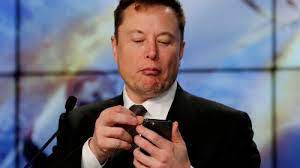Public sphere vitiated : On Twitter after Elon Musk
Controversies have dogged Twitter since Elon Musk’s takeover
It has been nearly two months since business magnate Elon Musk took control of Twitter Inc. after a $44 billion acquisition. The fear that there would be a loosening of content standards under his helmsmanship has played itself out to be eerily true. Yet, no one could have foreseen the chaos that has reigned since the takeover of the popular social media platform. There has been a whittling down of the workforce which has also included summary dismissals based on whimsical reasons. The loss of employees, especially those working in the appeals process and other content moderation teams, has hurt redress processes. Poorly thought-out decisions such as users paying a monthly fee to get a “verified account” have been overturned after an embarrassing increase in impersonation. The Twitter accounts of some journalists critical of Mr. Musk or who merely reported on a controversial decision by Mr. Musk to suspend the accounts of flight trackers have been suspended too without proper notice or explanation. Twitter also came up with a controversial rule about users not posting links to specific and rival social media platforms. This resulted in a severe backlash and forced Mr. Musk to post a poll asking his over 122 million followers whether he should step down as the “head of Twitter”, and in turn eliciting a majority response in the affirmative. Mr. Musk has now promised to find another CEO.
The past two months have made it clear that Mr. Musk is out of his depth in running operations in a platform that has gained outsized significance and appeal despite being unable to remain a financial success consistently. For-better or worse, Twitter has become a key member of the Internet public sphere, connecting journalists, public officials and powerful corporate leaders to the people and allowing for the dispersal of news, opinions and critiques, even if it has also retained aspects related to hate speech, bullying and disinformation. Twitter had tried to mitigate misgivings about the platform by coming up with content moderation principles and a rules-based order to govern content, although it has been a work in progress. But ever since Mr. Musk took over, this has been overshadowed by his arbitrary diktats and posturing. He seems to be aware that the loss of advertisers (a process that has continued because of the lowering of content standards) and of reputation (because of his arbitrariness ) will further hurt the company’s financial interests. This explains why he has agreed to step down. But his innate tendency of being a political reactionary seems to get in the way of doing the right thing. A more democratic and well-governed social media universe with newer platforms can help reduce the harm, but Twitter and its users also deserve better.
